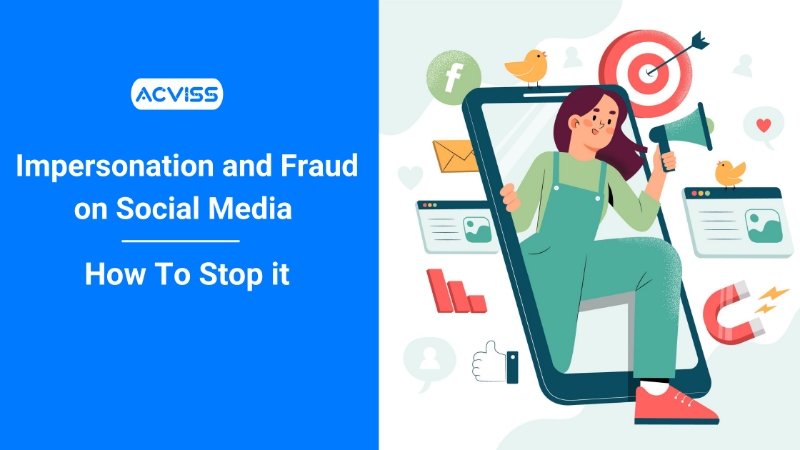
Our personal information is freely accessible online thanks to social media, and as a result, many people are the targets of impersonation frauds on these platforms. False profiles of you or someone you know are created on social media, and those profiles are then used to solicit money or private information from other people. You're not alone if you've ever come across a "false profile" online, whether it was your own or someone you knew.
The fast adoption of the internet and numerous social media platforms in our lives has led to an increase in the problem of social media impersonation and identity theft.
Social Media Impersonation
Digital identity theft takes the form of social media impersonation. With the help of personally identifiable information (name, photo, location, and background information) that has been taken from a specific person, a cybercriminal or fraudster builds a profile on a social platform.
To trick the victim's connections into believing the bogus profile belongs to a legitimate person they can trust is the first step in the attack. The ultimate objective is to take advantage of those who communicate with the false account using that appearance of authenticity (by asking for information, money, or discrediting the owner of the account).
What To Do
The following actions should be taken if you learn someone is impersonating you on a social media platform to minimize the harm:
- Capture images and well-researched screenshots of the fake profile and any associated activity.
- You don't want to tip them off, so stay away from contacting the imposter and avoid talking with them.
- Inform your contacts of the situation so that they can take appropriate action.
- Utilize the platform's specific support site to report the impersonation.
- Change the passwords for any accounts you have used the social network to access.
- To receive notifications when nefarious actors use your email addresses or when social media impersonators create accounts using your personal information, utilise an online privacy solution like Bitdefender Digital Identity Protection.
- Watch out for any strange behaviour while you conduct online business in the coming weeks as well as generally.
- The government of every country urges you to report illegal and dishonest activities that include online identity theft, impostor frauds, phony contests and awards, and a variety of other cyberattacks.

How to Prevent
- Limit who sees your Facebook posts and photos
Your public account postings and images provide scammers access to a wealth of information, including maybe enough to discover your birthdate, hometown, place of employment, high school, or even your maiden name. Therefore, be sure to only let your friends or family see any new content you post on social media. - On Snapchat, obfuscate your complete name and date of birth: Your whole name may be listed on your Snapchat profile, and you might even inform website visitors of your birthday. This implies that these particulars are also visible to everybody who can view you on Snapchat. This is truly a huge concern since scammers can use that basic information to search the internet and discover even more details about you, like the location in which you were born, your place of employment, and your current residence.
- Keep your Instagram pictures secret: Sharing your Instagram images with friends, family, and co-workers is enjoyable. However, sharing them with strangers could make you hesitant. If you make your public Instagram account private, only those you know will be able to see your images. Then, you can control who sees and who doesn't see your images.
- Look for phony profiles: To find out if someone has created a false social media page to impersonate you, conduct routine Google searches on your name. It's time to act if you discover a false profile. However, refrain from messaging the false profile itself. Contact the appropriate authorities instead.
Your Saviour
Impersonations on social media are becoming a more prevalent issue that affects thousands of brands and users on all major platforms. The dangers involved include decreased traffic and sales as well as reputational problems and a decline in customer confidence. Brands must confront the issue head-on by putting a thorough and scalable protection system in place to spot and get rid of such infringements as soon as feasible.
For this plan to be successful, technology and knowledge in intellectual property enforcement are essential. To safeguard your consumers and reputation, you may use Truviss to take advantage of machine learning and AI to automatically detect and eliminate phony websites, applications, and domains.


